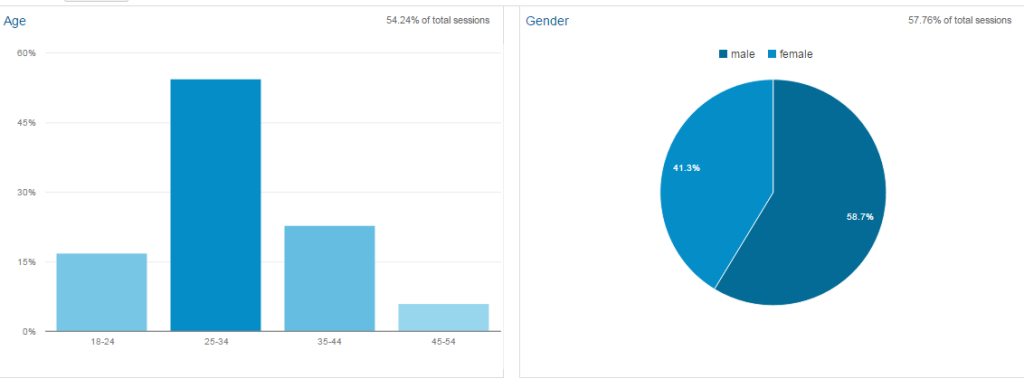Overwhelmed by the volume of massive accounts running in several countries or across the entire world, it’s not that rare to overlook the specific features for some territories and expect users in one country to be the same as their neighbours. Let’s have a look how to avoid the most common mistakes in international PPC.
We’ve seen it many times here at Serps that culture, product positioning or even local weather can have a big impact on business results.
International PPC campaigns are not simply just translations. They have to reflect on different cultures and markets, accept that the target audience is not the same. Users often use different words and collocations when searching for the products or services and the brand perception and product positioning are not the same across the world.
Let’s have a closer look at the most common mistakes or rather missed opportunities for international campaigns.
#1 Treating different markets the same way (and not considering differences between markets)
Geographical entities do share common features and if you’re aware of them, it’s going to help you match your messaging to the selected geo target. Users in some countries tend to be more organised, some are more focussed on quality and ecology other are more price sensitive or just respond better to sales.
Keep a list of general characteristics and any special features that you’ve noticed. Ask your sales people or customer service about any significant differences. Use your Google Analytics – particularly the audience tab. Review Facebook and Twitter analytics or any social management tool that you have access to.
You can get data like this:



#2 Vague understanding of your users and target audience
Based on what the main characteristics are and your research, think of several target audiences that you have in a specific country. Is it a busy mum at the age of 30, or rather a young professional interested in ecology? Do users buy the products for themselves or for someone else? Create personas and you’ll be surprised how your typical customers will differ.
#3 Using the same positioning and not considering unique brand perception
It’s entirely in your hands how you present your brand in a different market. In one country it can be a well-established brand with the majority of people using or knowing it. When entering a new market, you need to find your niche and for example be perceived as a luxurious, fresh or strong international brand. There is a nice example of a very traditional brand with a long history on a market that wanted to expand. Instead of focusing on history and brand awareness they had to find their new identity and amend the website, messaging, USPs, ad copy and banners to attract new customers on a new market.
#4 Missing the point just translating the content
Do not just translate your website and PPC campaigns from one territory but create bespoke campaigns bearing in mind the language and cultural differences. Your ads should sound like written by a native-speaker otherwise users won’t respond well. Details like using correct spelling for the UK and US market can have an influence on your CTR.
Are you covering all of these?
- keywords research for every new market from scratch
- research unusual keyword combinations and abbreviations
- add local keywords and slang
- include a list of negative keywords for a specific location or language
- include keywords with diacritical marks if applicable
Keyword localisation is very different from translation and keyword precision is super important for international PPC. You can easily miss your point by creating content that your target audience won’t get. Hire a local person who will go over the content and ad copy. Beware any grammar mistakes and you will be seen as untrustworthy and you don’t really want that when entering a new market. First impression matters.
#5 Missing out on cultural landing page optimisation
The same applies to the graphic. Localise your landing page for the new market, use culturally appropriate images and language. Remember that it has an effect on the conversion rate. If you’re unsure, run an A/B test.


#6 No proper campaign language set up
Create separate campaigns for a specific location and language targeting. It will help you with reporting and performance evaluation. It can be tempting to target several locations at once and use just the English copy across the foreign territories, but the response rate will definitely be poorer.
#7 Not using the local search engines
Do not forget that Google doesn’t have a majority on every single market and there are markets where local search engines or advertising platforms have a really strong position. Are you targeting Czech Republic? Then you need to be visible via a local search engine seznam.cz and use their advertising platform sklik.cz. Use Naver in South Korea, Baidu in China, and Yandex and Begun in Russia.
#8 Not utilising the local sale periods, events and holidays
Be aware of any local festive events that you can utilise for your PPC campaigns. Research and prepare a calendar of the most important ones to you can plan ahead any promotions, but keep in mind other as well so you can engage with your users via social media. There are specific sale periods in France, Black Friday is popular only in some territories and Carnival in Brazil is in winter.
#9 Neglecting weather forecasts
It can be quite surprising, but being aware of the weather forecast can help you understand the users’ behaviour. Obviously, it has a direct impact if your products or services depend on weather, but it is worth following the weather forecast even if they don’t.
Let’s say your winter collection is not selling well, so check if the target area is not tackling a heat wave at the moment. Weekends with horrible weather can also have a really nice impact on sales as people are around the house. Keep in mind that you might want to launch a summer sale in December – if you’re targeting the southern hemisphere.
#10 Being lost in budget management and different currencies
Managing budgets in several currencies can be tricky, and even though you are aware of it, it’s easy to make a mistake.
Always check you bids and budget settings so you don’t end up bidding 10 US dollars instead of 10 Czech crowns (=0.4 USD). It’s even more complicated when you have an account in euros or dollars, but are importing revenue in a local currency so the data is mixed.
Keep in mind that the currency fluctuations may have an impact on your financial results too.
Is there anything else that you need to keep in mind while managing the international PPC accounts? Tell us!
You can also find further resources about International SEO here.
Do you need help with your international PPC campaigns? If you have any questions, don’t hesitate to contact us.

